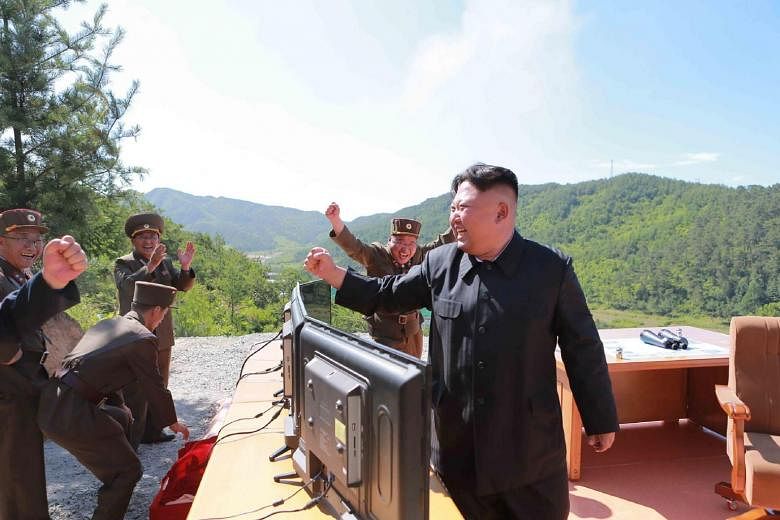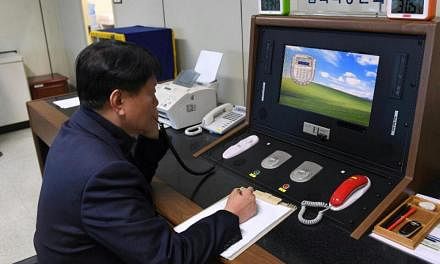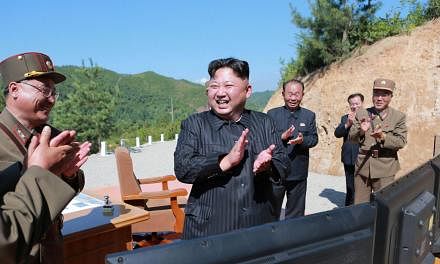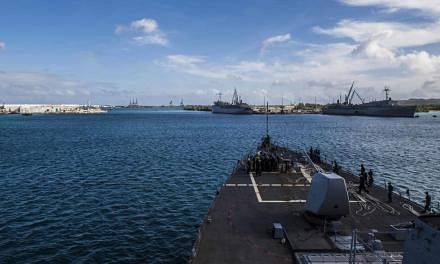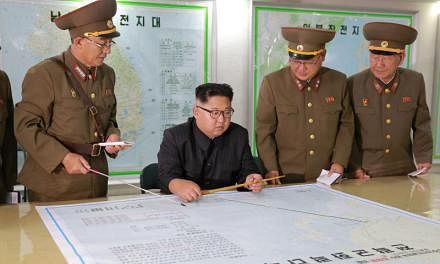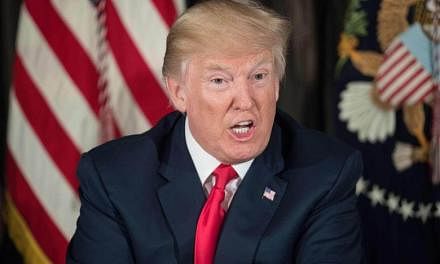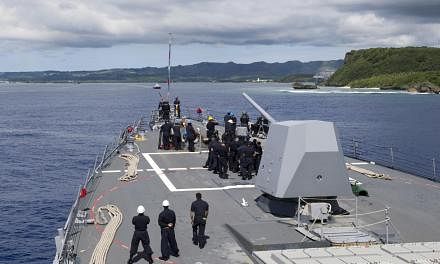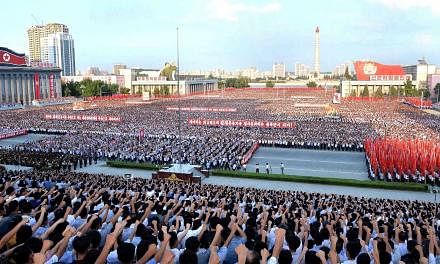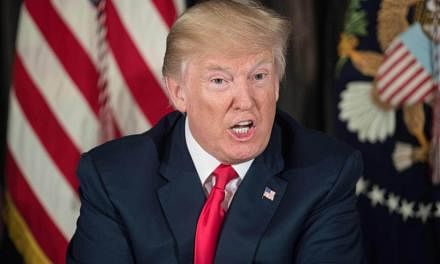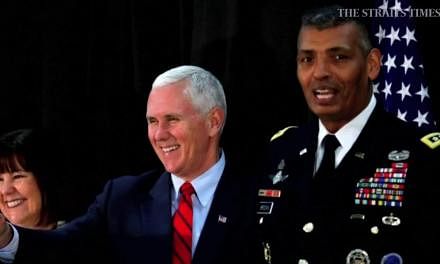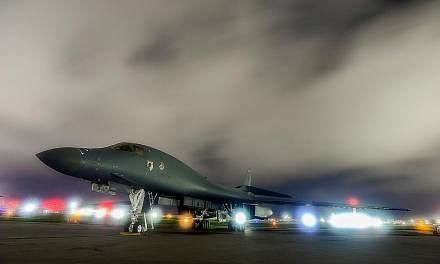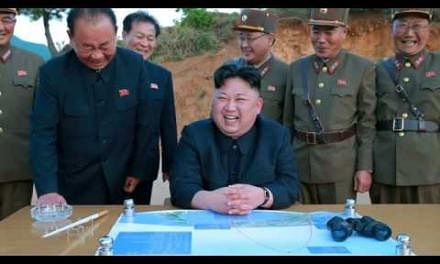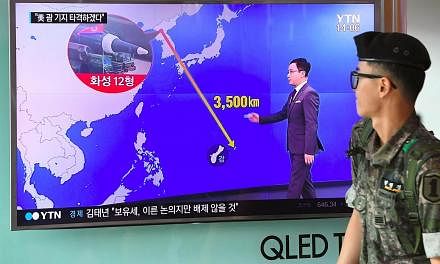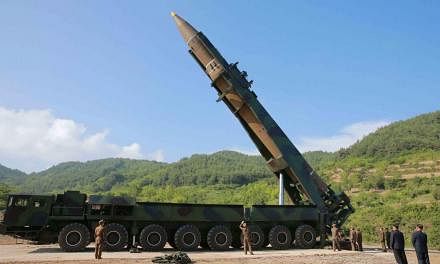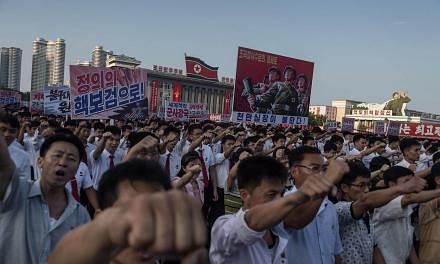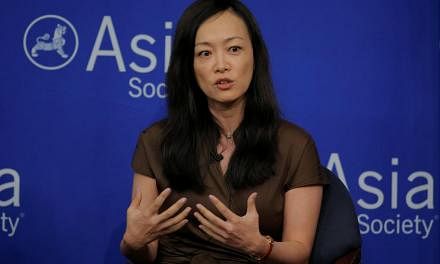SEOUL (BLOOMBERG) - When North Korean leader Kim Jong Un gave the order for what Pyongyang claims to be its first successful intercontinental ballistic missile (ICBM) test, he knew it would ruffle feathers in Washington and Beijing.
He may have even timed the launch of the missile, which Pyongyang dubbed the Hwasong-14, for maximum effect, ahead of the July 4 holiday in the United States and to throw a wrench into a planned meeting between President Donald Trump and Chinese counterpart Xi Jinping at the G-20 summit in Germany this week.
Whatever his motivations, Tuesday's (July 4) test - which follows a volley of other missile launches in recent months - shows that Mr Kim is not being slowed by international sanctions, Mr Trump's threats against him, or pressure from China.
If anything, he is accelerating his efforts to acquire a bigger nuclear deterrent, with the ultimate prize a missile that can carry a nuclear-tipped warhead to the US mainland.
That shows how difficult it will be to rein him in as he exploits differences between the world's two biggest economies on how to handle the regime.
Mr Trump says China has not done enough to keep Mr Kim on the leash, while Beijing's ambassador to the United Nations warned this week the "consequences would be disastrous" if Washington and Pyongyang fail to resume talks.
"The launch's significance lies in prolonging the game, but not changing the game," said Mr Yang Xiyu, a former Chinese negotiator in six-party talks on North Korea's nuclear programme. "We now know North Korea has entered a marathon-like confrontation with the international community," said Mr Yang, a senior researcher at the China Institute of International Studies. "Previously it was a middle-distance race."
Reclusive North Korea has for decades relied on its weapons programmes as a deterrent to outsiders. Mr Kim is also no different from his father and grandfather - both leaders before him - in using his military clout as a bedrock for his internal power. Encouraging a personality cult around the Kim dynasty helps him keep a grip on generals at home and foster public obedience.
North Korea has called its weapons programme a "precious sword of justice" against invaders. It has drawn comparisons with former dictatorships in Iraq and Libya, arguing that Saddam Hussein and Muammar Gaddafi fell because they gave up on developing nuclear arms.
The regime has also used provocations to secure concessions from neighbours in the form of aid. China, the main economic lifeline of North Korea, has been reluctant to press too hard in case it leads to the collapse of the regime and chaos on its border.
Tensions are rising between Mr Trump and Mr Xi over a broader range of issues. In a call with the US President this week, Mr Xi complained about a negative turn in ties.
The US has in recent days announced an arms sale to Taiwan, published a report ranking China among the world's worst human-trafficking offenders and called on Beijing to let ailing Noble Peace Prize winner Liu Xiaobo seek cancer treatment abroad.
North Korea is likely to dominate the Xi-Trump talks in Hamburg.
Mr Trump has said all options including military force are available against Pyongyang, though its neighbours warn a strike could be disastrous for North Asia.
South Korea's new government favours talks to bring Mr Kim to heel, also putting it potentially at odds with Mr Trump's administration.
"The message North Korea is sending is simple: Whatever you do, our capability is getting greater and greater and we are not changing our policy," said Mr Andrew Gilholm, director of analysis for North Asia at Control Risks Group. "You are going to have to change yours."
Following Tuesday's missile launch, North Korea bragged it was a "full-fledged nuclear power" with ICBMs that can hit any part of the world.
"The DPRK will fundamentally put an end to the US nuclear war threat and blackmail," it said, using an abbreviation for the nation's formal title.
Mr Kim's actions do not come without risks. Even Mr Xi may have limits to his patience with the regime, especially if he risks appearing weak. And under Mr Trump, the US has become more vocal about the potential for a military clash.
"For Xi, North Korea is an affront to his image as a great leader on the world stage," said Mr Gilholm. "It is humiliating when he's being ignored by a 30-something tin pot dictator just over the border. So China's patience wearing thinner. There is a real chance they may squeeze harder than before."
Still, Dr Zhang Liangui, a professor at the Chinese Communist Party's Central Party School, said that Mr Kim made a "classy move" to manipulate relations between the major powers.
"The leaders from both sides need to be very careful to not let North Korea manage their relationship," he said. "The ICBM launch could make an enormous impact on China-US relations and even cause severe damage."
